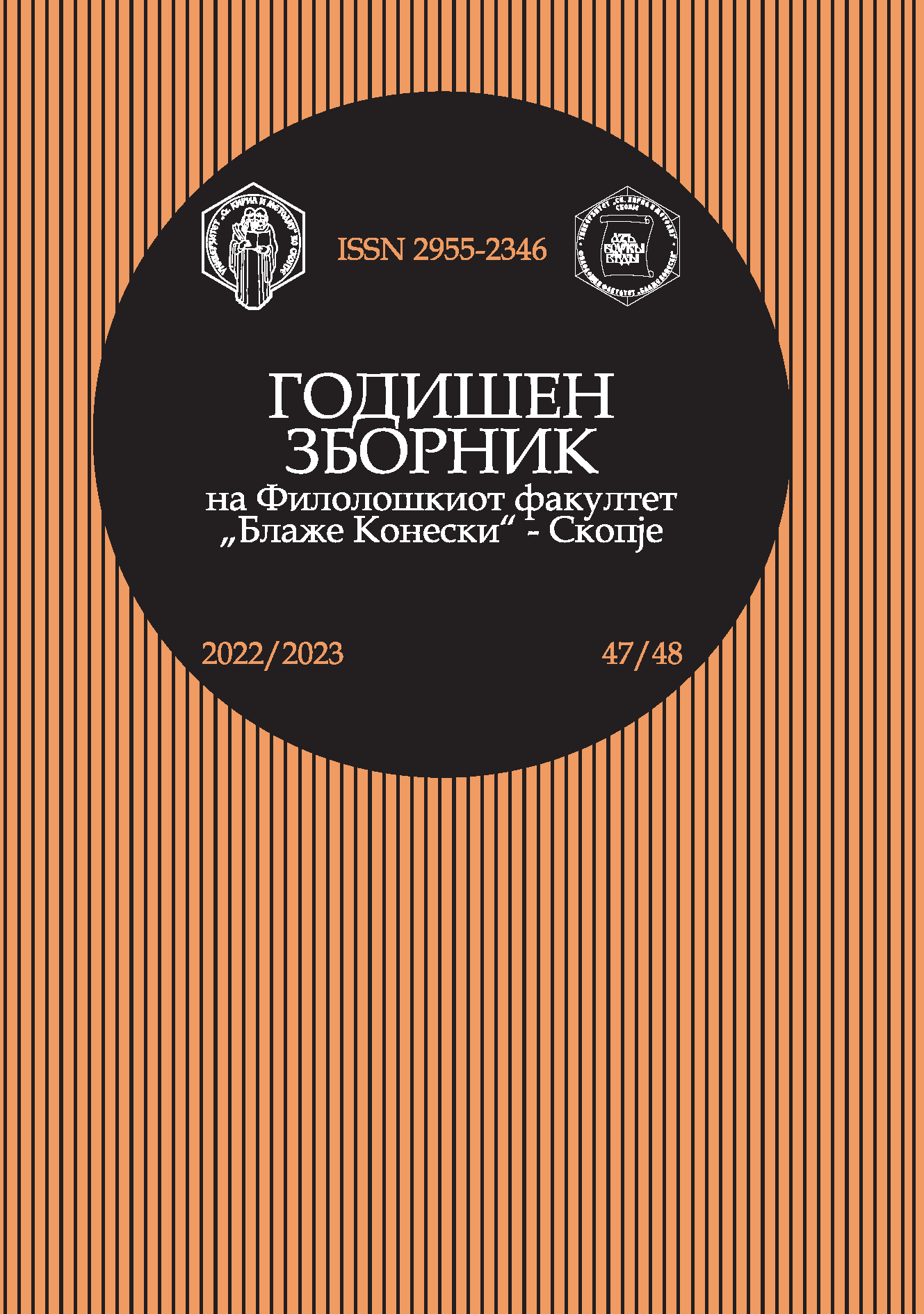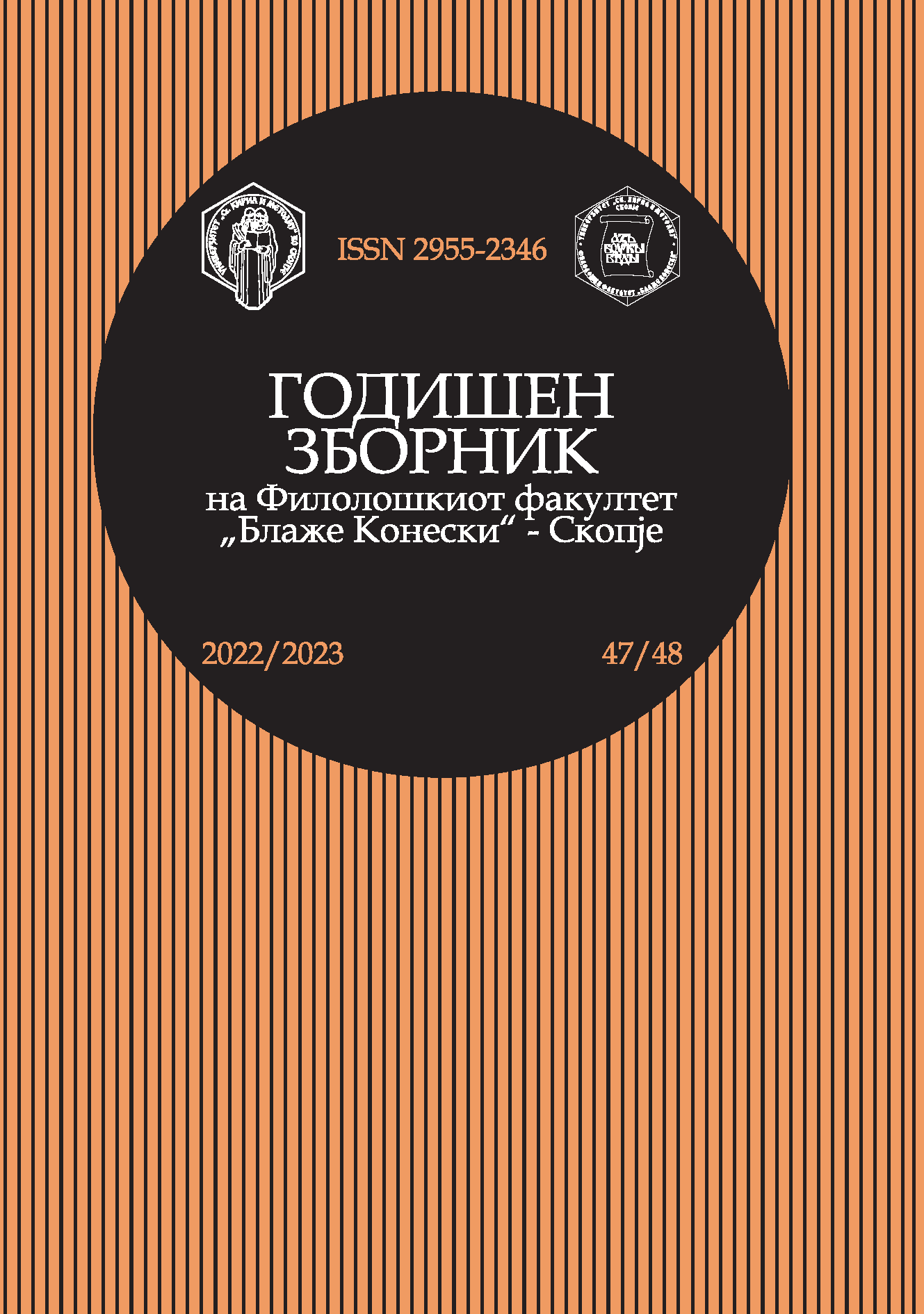Употребата на англизми во секојдневниот говор на адолесцентите во Република Северна Македонија
експозе од магистерски труд
ДОИ:
https://doi.org/10.37834/GZF2247-48543cКлучни зборови:
англизам, адолесцент, заемки, јазично планирањеАпстракт
The widespread use of the English language has impacted a number of languages, such as French, German, Spanish, etc. in the form of new vocabulary, uncharacteristic for the receiving language. Numerous linguists and researchers have debated about this occurrence, and in recent years it is becoming a hot topic once again. We decided to look into the usage of anglicisms, as well as the reasons for it, among adolescents in the Republic of N. Macedonia, since this group is the most prone to the influence of English. Anglicisms are defined as words or phrases borrowed from the English language into a foreign language.
We hypothesised that adolescents would opt for an anglicism rather than the Macedonian equivalent, and their reasons would be either because it sounds more natural to them or because they are more acquainted with it through their peers or social media. To test our hypotheses, we conducted an online survey, which contained open questions, where the adolescents could express themselves in more detail, and fixed questions containing pairs of sentences. The analysis of the results confirmed our hypotheses – adolescents do opt for an anglicism even when given the choice of a Macedonian equivalent, and their reasons to do so are mainly that it sounds more natural to them or that they are more acquainted with it.
It can be concluded that adolescents are quite influenced by English either through their peers or the media, and, even when given the choice, they feel more comfortable using an anglicism rather than a Macedonian equivalent.



